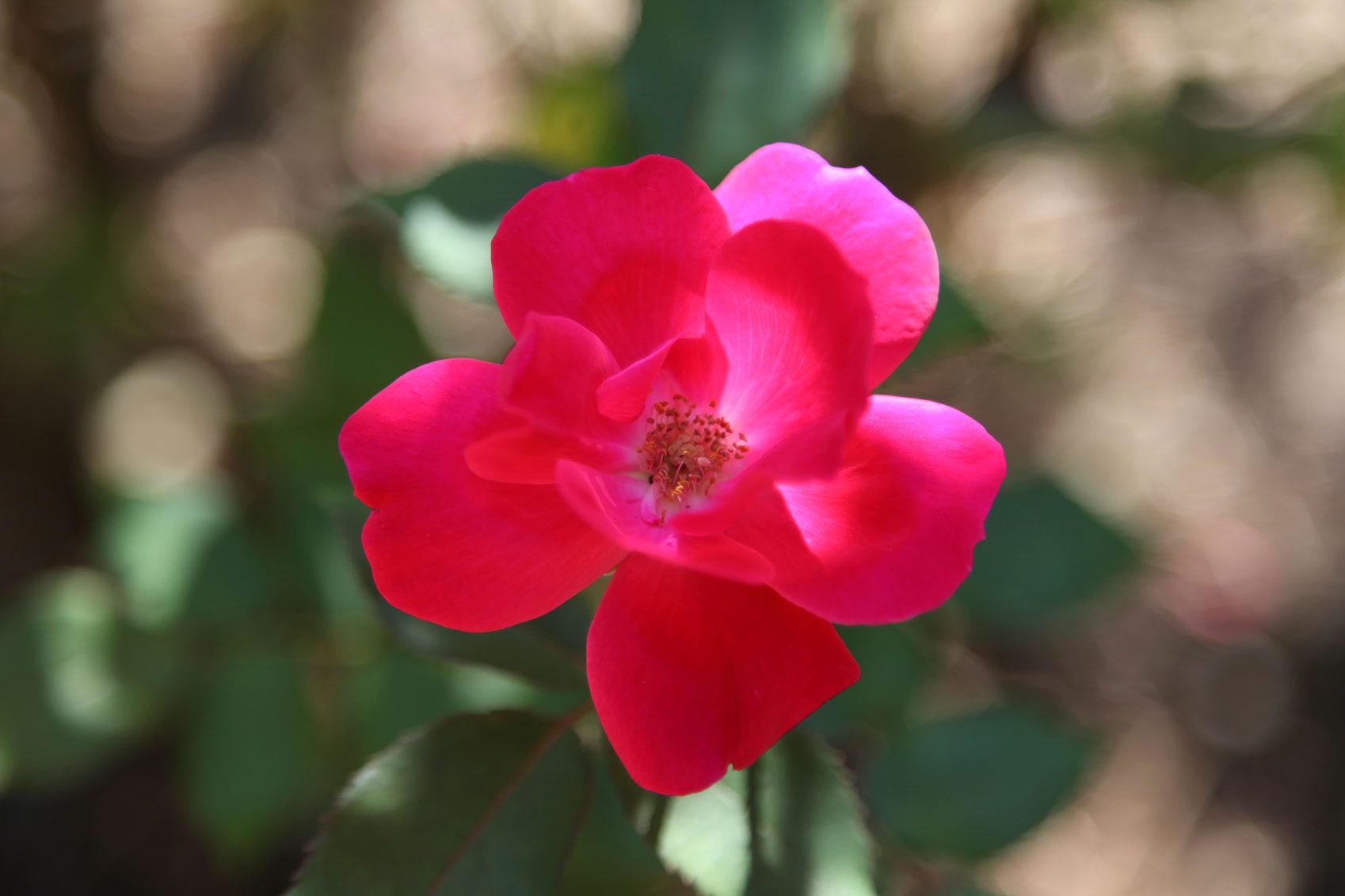Common Knock Out Rose Problems: Diseases Of Knock Out Roses


Knock Out rose bushes are known for being extremely disease resistant as well as being nearly carefree. However, even these fine rose bushes can, due to climatic and poor care/conditions, succumb to some of the same diseases that plague other rose bushes in our gardens and landscapes. Let's learn more about these potential problems with Knock Out roses.
Knock Out Rose Diseases
There are five common diseases of Knock Out roses and one serious virus that they now must also deal with. The five common Knock Out rose diseases are:
- Black Spot Fungus
- Botrytis Blight (aka: Gray Mold)
- Powdery Mildew
- Rust
- Stem Canker
A well fed, well hydrated and actively growing Knock Out rose bush will be able to fend off these diseases. However, if we add into the scenario the stresses of injury (perhaps due to a weed whacker), heat stress, lack of water, poor soil, or insect and mite invasion, the rose bushes become a far more easy target for diseases to attack.
Also, a minimal care rose bush does not mean a “no care” at all rose bush, just as “disease resistant” does not mean a disease-free rose bush. The Knockout roses, just like their counterpart roses, do need some care.
And then there's that virus mentioned earlier, a disease is called Rose Rosette disease (RRD). The RRD virus is a nasty incurable virus. Once the rose bush contracts the disease, it is best to dig it out and dispose of it. Planting another Knock Out rose in the same location should be fine, though I do recommend replacing the planting hole soil with a good bagged garden soil mix (preferably one that has compost and little to no fertilizers). Here is a listing of symptoms of the Rose Rosette virus:
- New growth on many rose bushes is red and hardens off to green as the leaves and canes mature. If infected with the RRD virus, this mature growth will remain red.
- An abundance of short shoots near the tops of the canes (aka: witches broom). Please keep in mind that this particular symptom can be caused by herbicide injury, so if you or a neighbor has been applying an herbicide, the drift of the spray could cause this. Be sure to check for other symptoms!
- Distorted, underdeveloped leaves.
- The affected canes may be thicker than the section of cane they are growing out from or they may appear to be growing in a spiral pattern.
- The infected canes may have an unusual amount of thorns, totally different from the rest of the canes on the bush.
- The bloom buds may stop midstream and fall off, or the blooms may be deformed or mottled.
Treating Issues Affecting Knock Out Roses
For most problems with Knock Out roses, the spray application of a good fungicide at timely intervals would be considered wise, along with, of course, keeping an eye on the soil moisture levels and nutritional needs of the rose bushes. Any particular Knock Out rose problems that may arise is far easier to manage if noticed early on. In my rose beds, I try to keep applications of pesticide to a minimum, and when I do need to make an application, I follow three simple rules:
- Positively identify the problem. There is nothing worse than using multiple applications of various pesticides in an effort to solve a given problem.
- Thorough watering of plants. Water rose bushes well the day before making any pesticide application. This includes feeding them too!
- Use the most earth-friendly product first. Try organic approaches before moving on to harsh chemical treatments and only if the problem is severe and nothing else helps in a reasonable amount of time.
Note: Any recommendations pertaining to the use of chemicals are for informational purposes only. Chemical control should only be used as a last resort, as organic approaches are safer and more environmentally friendly.
Sign up for the Gardening Know How newsletter today and receive a free copy of our e-book "How to Grow Delicious Tomatoes".

Stan V. Griep contributed to Gardening Know How for many years and has been a Colorado Native Rosarian for over four decades. He is an American Rose Society Certified Consulting Master Rosarian in the Rocky Mountain District, and a member of the Denver Rose Society, the Loveland Rose Society, and the American Rose Society. He is Gardening Know How's in-house expert on all things roses.